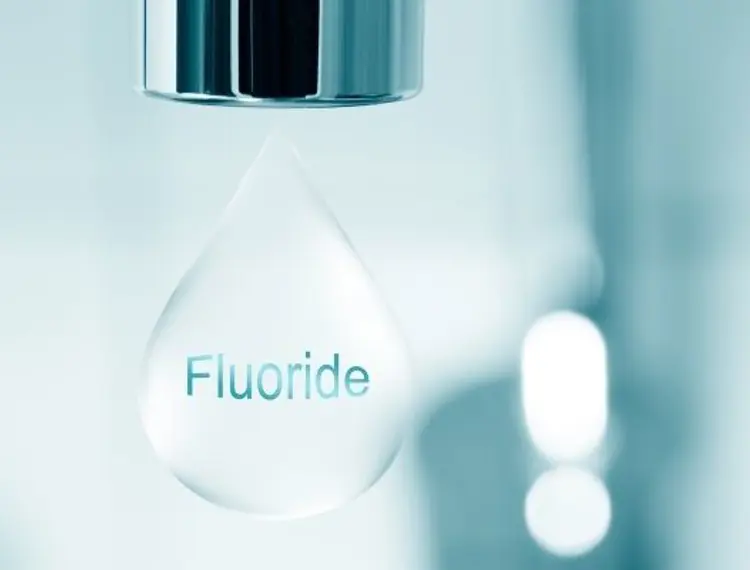
Almost all of us use a fluoride toothpaste when we brush our teeth. The fluoride in toothpaste strengthens our teeth against the acid attacks from bacteria that cause tooth decay. Fluoride mouthwashes are also available, and dental practitioners can apply fluoride varnishes or gels to our teeth for extra protection.
One of the major contributors to the dental health of Australians over the past decades has been the fluoridation of our drinking water. Water fluoridation involves adjusting the natural level of fluoride in water to an ideal level for dental health. For most of Australia this is around 1.0 milligrams per litre (mg/L) of fluoride in water. This can also be reported as 1 part per million (ppm). The amount of fluoride added is often slightly lower in hotter climates because people will usually drink more water to stay hydrated. Each time you drink fluoridated water during the day, it provides a low dose fluoride treatment to your teeth. This helps to protect and strengthen the teeth.
Almost 90% of Australians, from the very young to the very old, enjoy the dental health benefits of fluoridated drinking water. But what if you are living away from a town water grid, or in one of the few Australian towns and cities not fluoridating their drinking water?
Many Australians may remember taking fluoride tablets or drops as children. Research has shown that these methods are not as effective as drinking fluoridated water and other using forms of fluoride, such as toothpaste, in reducing the risk of tooth decay. As well, fluoride tablets and drops are no longer sold or recommended in Australia. So, should you ask a pharmacist to make up fluoride drops to add to the water jug in the fridge, or perhaps buy fluoride tablets over the internet to dissolve in the rainwater tank, so you can then drink your own 'fluoridated water'?
That sounds like a good idea, but it is not. Ensuring that the level of fluoride in your drinking water is both safe and effective is a job for specialists. Councils and water authorities spend a lot of money getting the fluoride concentration in your drinking water as close as possible to the ideal level. The amount of fluoride added to the water will depend on the natural level of fluoride in the water, and this can vary from area to area and over time. Highly trained water treatment plant operators monitor the natural level of fluoride in the water. This allows them to adjust the level of fluoride in drinking water going out to your tap every day. It's a tricky task that requires very expensive equipment. Trying to copy that level of safety and security at home is almost impossible. Anyone using fluoride tablets or drops in a water jug or water tank will only have a very rough idea of the concentration of fluoride in the water. It could easily be too low, which would make it not effective. Worse, it could be too high which could increase young children's risk of developing dental fluorosis.
If you already live a healthy lifestyle, with a low-sugar diet, a great daily routine of toothbrushing and cleaning in between your teeth, and regular dental checks, your risk of developing tooth decay is low, even if you are not drinking fluoridated water. Keep doing what you're doing!
If your risk or your family's risk of developing tooth decay is higher, it is important to talk with your dentist. You may need help with your oral hygiene or advice on your diet. Brushing and flossing are not always easy, and many foods like 'health' bars, biscuits, soft drinks, juices, flavoured milk, sultanas and dried fruit, honey and breakfast cereals contain LOTS of sugar. Other measures can also help. These can include using a higher strength fluoride toothpaste, children starting to brush their teeth with fluoride toothpaste at a younger age, or fluoride mouthwashes, gels, and varnishes. But please leave water treatment to the experts!
Are you from Victoria?
See whether your local community has access to fluoridated water with this interactive map.


